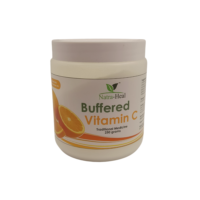Description
Lupus is a chronic inflammatory auto-immune condition. Lupus may affect many of the body’s organs and tissues including the skin, blood vessels, and joints. Lupus is contracted primarily by women (Asian women appear to be at great risk than other women) in their late teens to early 30s, although men may also be at risk.
There are two types of lupus:
1. Systemic lupus erythematosus (SLE). Systemic lupus affects many parts of the body and can range in severity from mild to life-threatening.
2. Discoid lupus erythematosus (DLE). Discoid lupus is a less serious condition and primarily affects the skin
Symptoms
(SLE): Systemic lupus symptoms often resemble arthritis, with swelling and pain experienced in the fingers and joints. A red rash may appear over the cheeks accompanied by scaling lesions elsewhere on the body. Symptoms such as abdominal pain, chest pain, loss of appetite, fever, fatigue, blood in the urine, ulcers, vomiting, hair loss, and weight loss may also be experienced. In 50% of cases, SLE sufferers develop inflammation of the kidneys (nephritis). In more serious cases the brain, spleen, lungs, or heart may also be affected. If the central nervous system is implicated symptoms may include psychosis, paranoia, depression, seizures, depression, paralysis, and stroke
(DLE): In Discoid lupus erythematosus a butterfly rash may develop over the cheeks and nose. Lesions may develop on the scalp and ears, chest, neck, hands shoulders, and upper arms. The lesions appear as small soft lumps, usually yellowish in colour.
The lesions often leave marks or scarring. If the lesions appear on the scalp they may leave permanent bald patches. Although not dangerous DLE is a disfiguring skin disease. Ultraviolet light from the sun might cause a flare-up of DLE, in addition, fatigue, pregnancy, stress, infections, and some drugs may trigger a flare-up
Treatments
Lupus treatment will revolve around symptom management, these will include lifestyle modifications, sun protection, and diet. Further disease management may include allopathic medications such as anti-inflammatories, immunosuppressive agents, and corticosteroids in severe cases.
Nutrients and supplements:
- Vitamin D: Vitamin D deficiency is common in people with lupus, and low levels have been linked to increased disease activity. Supplementing with vitamin D may help improve bone health and reduce inflammation.
- Omega-3 fatty acids: Omega-3 fatty acids, found in fatty fish and fish oil supplements, have anti-inflammatory properties and may help reduce inflammation and improve joint pain and stiffness.
- Probiotics: Probiotics are beneficial bacteria that can help support gut health and the immune system. Some studies suggest that probiotics may help reduce inflammation and improve symptoms in people with autoimmune diseases, including lupus.
- Turmeric: Turmeric contains a compound called curcumin, which has anti-inflammatory properties. Some studies suggest that curcumin may help reduce inflammation and improve symptoms in people with lupus.
- B vitamins: B vitamins are essential for energy production and immune function. Some studies suggest that vitamin B12 and folic acid may help reduce disease activity in people with lupus.
- Inflammation formula – a general anti-inflammatory, for all inflammatory conditions.
- Auto-immune remedy – for balancing and healing the immune system when autoimmune diseases such as Lupus, MS, FMS, and Rheumatoid Arthritis are present.
- Zinc – promotes healing and protects organs and skin.
- Kelp – supplies minerals that may be deficient.
- Milk thistle and dandelion – to support the liver
Causes
While the exact cause of Lupus is unknown it is thought that the following may have a role:
1. Environmental elements such as being exposed to ultraviolet light (UVA and UVB), food additives, chemicals, possible exposure to silica dust in an agricultural or industrial setting, and food allergies
2. An unknown/unidentified viral Infection, other infections such as Epstein-Barr virus.
3. A genetic predisposition.
4. Drug reactions.
Underlying Emotions
Feelings of being under attack, especially by close family members. Feelings of powerlessness to change the circumstances in one’s life. Due to long-term punishment or abuse, there is a belief that punishment is deserved. Oversensitivity to people or situations. Unresolved anger toward a parent or influential person.
Diet
- Eat a well-balanced diet: Include plenty of fresh fruits and vegetables, lean protein, whole grains, and healthy fats in your diet. This will provide your body with the necessary nutrients to support its immune system.
- Choose anti-inflammatory foods: Certain foods are known to have anti-inflammatory properties and can help reduce inflammation in the body. Examples include fatty fish, nuts, seeds, olive oil, and fruits and vegetables with high levels of antioxidants.
- Avoid trigger foods: Some people with lupus find that certain foods trigger their symptoms. These can include nightshade vegetables (such as tomatoes, peppers, and eggplant), dairy products, gluten, and processed foods. It’s a good idea to keep a food diary to identify any trigger foods.
- Limit alcohol and caffeine: Alcohol and caffeine can interfere with sleep and exacerbate symptoms such as anxiety and joint pain. Limit your intake of these substances or avoid them altogether.
- Stay hydrated: Drinking plenty of water can help flush toxins from your body and reduce inflammation. Aim to drink at least 8-10 glasses of water per day.
- Consider vitamin and mineral supplements: Some people with lupus may need additional vitamins and minerals to support their immune system
- . Try to get iron from your diet, iron supplements may contribute to pain and inflammation.
Remedies
-
 Autoimmune Formula TinctureR84.00
Autoimmune Formula TinctureR84.00
-
 Kelp CapsulesR95.00
Kelp CapsulesR95.00 -
 TurmericR74.00
TurmericR74.00 -
 Vitamin B ComplexR50.00
Vitamin B ComplexR50.00 -
 Omega 3 CapsulesR223.00
Omega 3 CapsulesR223.00 -
 Zinc TabletsR70.00
Zinc TabletsR70.00 -
 Vitamin E CapsulesR119.00
Vitamin E CapsulesR119.00 -
 Multi Vitamin TabletsR50.00
Multi Vitamin TabletsR50.00 -
 Milk Thistle & Dandelion TinctureR84.00
Milk Thistle & Dandelion TinctureR84.00 -
 Inflammation Formula TinctureR84.00
Inflammation Formula TinctureR84.00 -
 Inflammation Formula CapsulesR77.00
Inflammation Formula CapsulesR77.00 -
 Buffered Vitamin C PowderR280.00
Buffered Vitamin C PowderR280.00 -
 Buffered Vitamin C CapsulesR70.00
Buffered Vitamin C CapsulesR70.00

